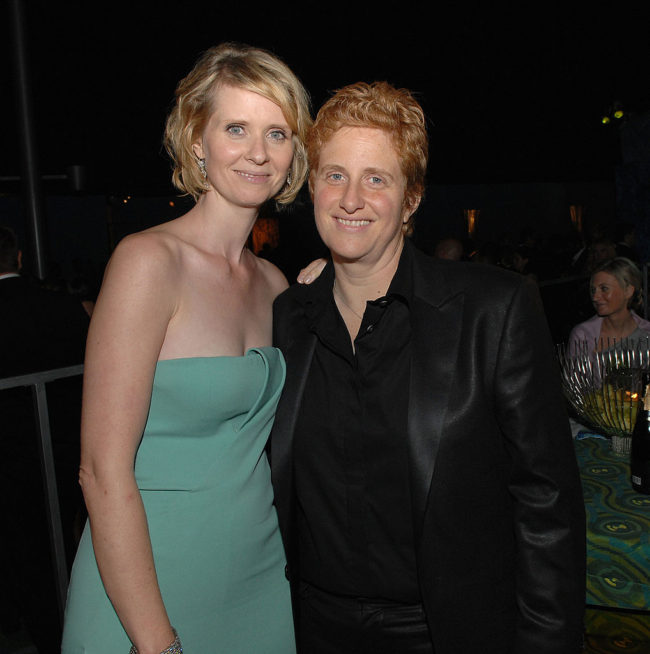Sex and the City star Cynthia Nixon explains why a ‘queer’ identity fits her best

Cynthia Nixon at the opening night of the new Richard Greenberg play “The Perplexed” on March 3, 2020 in New York City. (Bruce Glikas/WireImage)
The Sex and the City star Cynthia Nixon has explained why she prefers the occasionally polarising term “queer” to describe her identity.
Nixon, 54, confirmed in 2018 that she identifies as “queer” rather than “lesbian” or “bisexual”. When pressured further she chose not to elaborate, replying at the time: “It’s personal”.
She’s now opened up about her sexuality in a new interview with Attitude, explaining that while she could call herself “lesbian, gay, or bisexual”, these terms never seemed “particularly right” for her.
“To say ‘queer’ means, ‘I’m over there, I don’t have to go into the nuances of my sexuality with you,'” said Nixon, who began dating her now-wife, Christine Marinoni, in 2004 after splitting from her husband of 15 years.
While her first relationship with a woman was undoubtedly a significant point in her life, she stresses that it wasn’t a “lightbulb moment” for her.
“Falling in love with my wife was one of the great delights and surprises of my life, but it didn’t seem like I became a whole new person, or like some door had been unlocked,” she said.
“It was like: ‘I have fallen in love with different people in my life and they’ve all been men before. Now, this is a woman and she is amazing.’ So I feel like ‘queer’ is an umbrella term, and it includes my formerly straight self, too.”

Cynthia Nixon and partner Christine Mariononi at the Emmy Awards Reception (Stephen Shugerman/Getty)
Discussions about LGBT+ identities are undoubtedly a hot topic at Nixon and Marinoni’s dinner table, as Nixon’s 23-year-old son, Samuel, recently came out as transgender.
Speaking on the Homo Sapiens podcast earlier this year, Nixon said that the most important tip she’d received for parenting a trans kid had come before she realised Samuel was trans.
“Before I ever had an inkling my kid might be trans I read a really extensive article… [about] all of these parents of pre-pubescent kids who were really struggling with this,” Cynthia Nixon said.
“There was one dad who said, ‘At a certain point, the decision seemed to me I could have a dead son or a live daughter’ and it’s like, after you say that, what more is there to say?

